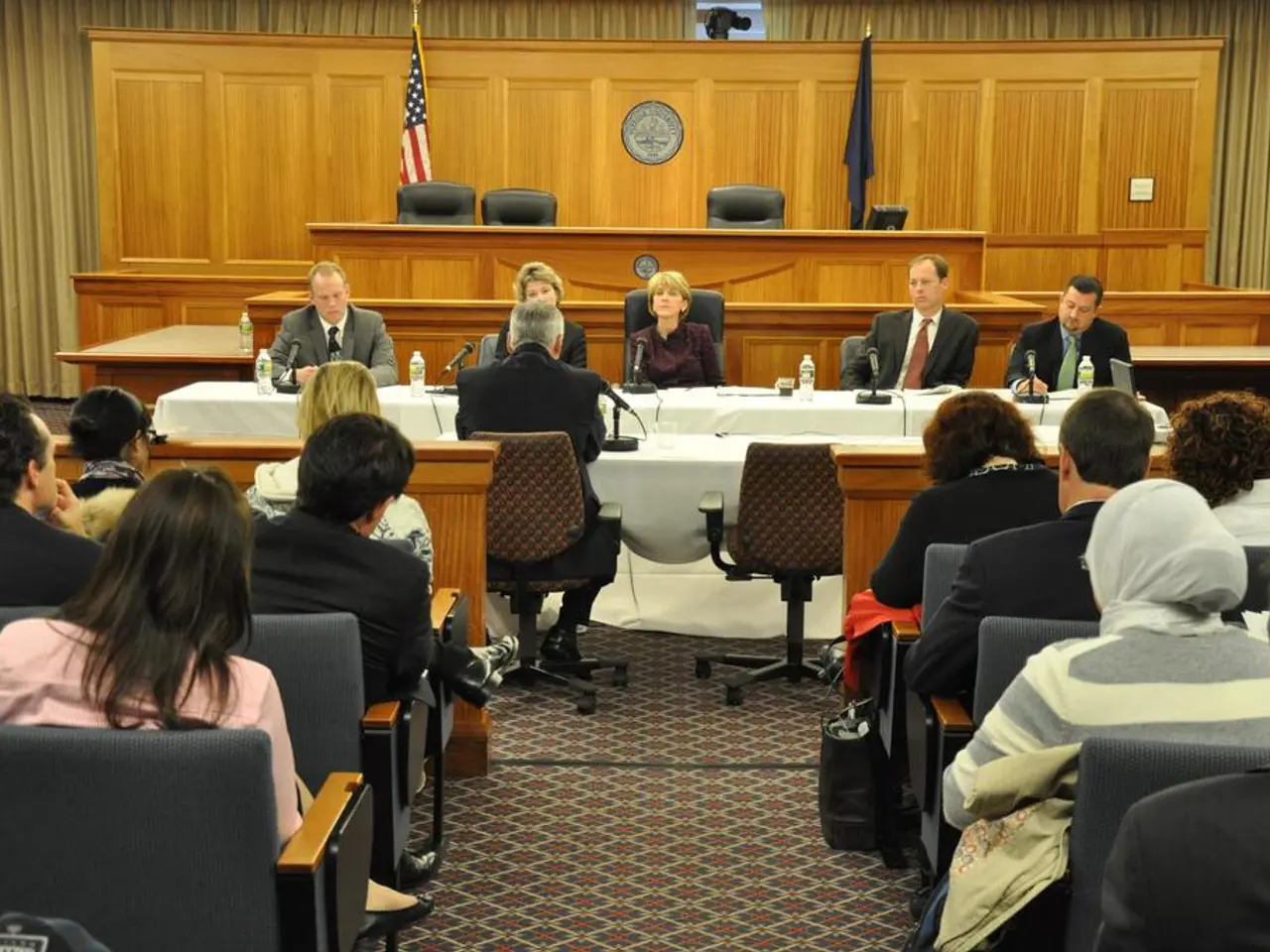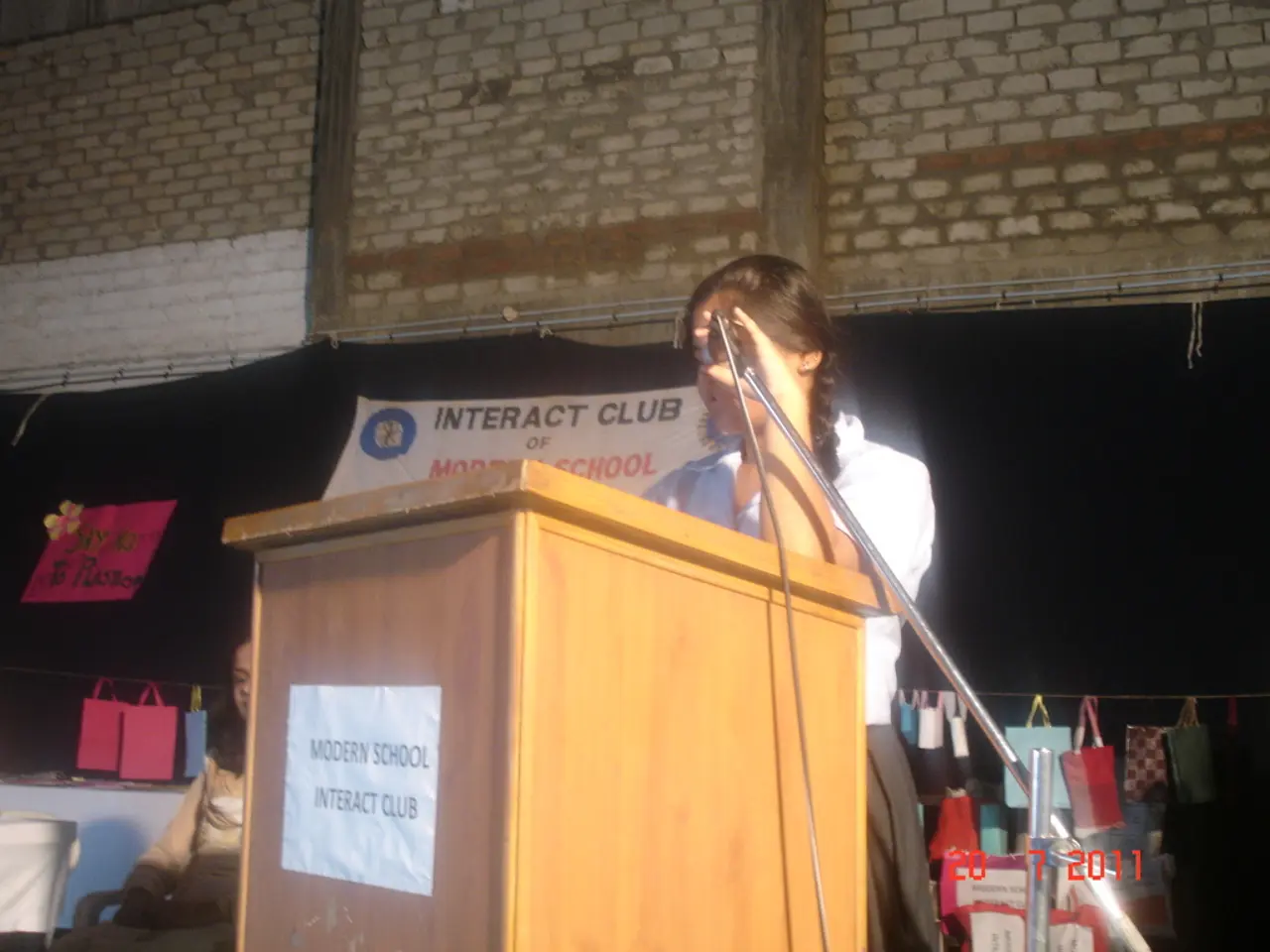Let's Talk Trade: The EU-US Tussle and Merz's Push for Rapid Action
Leaders Merz and Macron urge swift customs agreement with Trump
The clock is ticking as the US-EU customs agreement deadline approaches in less than two weeks. A new proposal from Washington has hit the Brussels desk, under review as Merz and Macron push for a swift conclusion.
As time runs short, there's a growing sense of urgency for a swift resolution in the trade dispute between the US and the EU. Merz and Macron have called for a "speedy" agreement with Washington. EU Commission President von der Leyen revealed that the EU is ready for an agreement but is also preparing for a possible lack of a satisfying deal.
Politics The Trump Effect: Ruffled Feathers at the NATO Summit Leaders of state and government have encouraged and pressed von der Leyen to reach a quick agreement with the Americans, Merz asserted after the summit to journalists. With the scheduled deadline set by Trump for negotiations looming on July 9, the EU Commission leads the talks. Macron echoed the sentiment, calling for "immediate conclusion of an agreement, it should not lag any longer." Nonetheless, he emphasized, "not at any cost."
Merz walked back his earlier criticisms of the Commission's negotiating tactics being "too complex." He had demanded a basic agreement for the automotive industry, chemical and pharmaceutical companies, as well as steel and aluminum exports at a Federation of German Industries (BDI) event.
Business "Time to Speed Up" Merz: EU-US Negotiations Too Complicated Trust between the two parties may be running thin. With Trump threatening to increase tariffs further on EU exports, both the automotive and steel industries are taking a significant hit, with an increased tariff rate of 25 percent imposed on them.
Discussion revolves around an agreement similar to the "Swiss cheese model." General US surcharges could remain if exceptions apply for key sectors like automotive and steel. Commission President von der Leyen has yet to comment on the details of the latest US document for further negotiations.
Background Trade Tensions Escalate: A Tariff Showdown Trump's contentious trade policies have caused friction with global trading partners. In April, he imposed high additional tariffs on numerous countries, later scaling them back to 10 percent for 90 days. If negotiations fail, the EU has prepared counter-tariffs, potentially affecting US products worth around 100 billion euros. For comparison, US tariffs are estimated to affect European products valued at around 370 billion euros.
The stakes are high. If a deal isn't reached by July 9, US tariffs could double or even quintuple, elevating the already strained relations between the two powerhouses. The Commission has ruled out changes to EU laws but is open to talks with Washington. It remains to be seen whether Merz, Macron, and von der Leyen can navigate these tumultuous waters and secure a "Quick Zoll Deal" for the best interests of their respective economies.
[1] CNBC https://www.cnbc.com/2025/06/01/us-european-union-tariffs-interview-ksiegocki-reuters.html[2] BBC https://www.bbc.com/news/business-50675861[3] European Commission https://ec.europa.eu/info/business-economy-euro/single-market/consumers-daily-life/products-services/tariffs-and-trade-barriers/retaliation-measures-against-u-s-tariffs_en[4] EUobserver https://euobserver.com/trade/145367
The political landscape is dynamic as Merz and Macron, amidst the trade dispute between the US and the EU, have urged for an "immediate conclusion" of the agreement, with a proviso that it should not be at any cost. The Commission is also proposing to increase the number of EU-funded projects in the field of education and training, possibly as a strategic move to strengthen the European Union's position in the ongoing negotiations.





